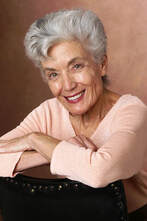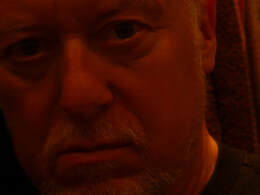|
Short Fiction ~ Mahesh Nair (First Prize, Strands International Flash Fiction Competition - 3) You are in a sack of self-glued cardboard and a peacock headdress under a scaffold on 32nd and Broadway. Night and drizzling. You unload the cart: a nibbled-at mattress and a noisome blanket. You’ve been acting weird with me. A white man saunters by and slips on a banana peel, but throws his hands down in time, like a good actor. “Filthy filth,” he screams. You laugh back. He yanks his phone out and calls 911. From across the road, I trudge in a sack of cardboard and a peahen headdress; sit next to you. We peel apart our cardboards and lay them down in front of us. Our messages to each read, Happy 10th Wed. Annv. and 2nd year of Sobriety inside a drawn heart. “Your heart is more roundish,” I say. Almost round like the slimy ball you’d picked from trash, the glazed doughnut I crave, the painful lumps below my rib cage nobody’s aware of. An NYPD car pulls up. A white cop steps out and talks to the man, before ambling toward us. “I’m fine with you here, but leave in the morn.” He then scans our cardboards. “Ah! Congrats.” He pulls out his wallet, hands you a bill of 100 and leaves. “A dozen glazed from Dunkin, hon?” I shout Yes like the one years ago. You cackle before whizzing into the mizzle and away. I look at your heart on the cardboard. They are tiny pearls of words in a heart shape: Homeless, we will overcome the bumps together. Lumps too. We will have feathers one day and be in full plumage. Seconds later, the man and the cop return with a cameraman. You follow them. “Let’s reshoot this from a close angle,” the man says. He adjusts your microphone. “Be yourself. Okay? No acting.”  Mahesh Nair studied fiction at New York University. He was short-listed for Bath Flash Fiction Award, Micro Madness NFFD, London Independent Story Prize, and long-listed for Reflex Fiction prize. His work has appeared in Barren Magazine, Literary Orphans, Crack the Spine, The Bookends Review, Smokebox, Paragraph Planet, 101 Words, Blink Ink Print, and is published in three anthologies. He was a contributing author for a CNF anthology, Lady by the River.
1 Comment
Short Fiction ~ Elaine Barnard (This story is the second prize winner in the Strands International Flash Fiction Competition - 3) I elbow the little guy beside me. “I don’t like anyone trying to jump ahead of me,” I yell at the teller. Maybe he thinks since he’s small he can get away with it. But no one gets away with it when I’m around. I sense it coming. I know by body language when someone is gonna pull a fast one. My dad always said, “Give them an inch, they take a yard,” and he sure was right. The bank teller, Becky, her name tag says, looks at me like I’m a foreign creature, a guy from another planet. “What can I do for you?” Becky says meekly. Like she’s afraid if she talks loud I might blow the bank up. “Look, this guy tried to get ahead of me.” Becky presses her lips into a thin white line. She’s not bad looking, just kinda boring in her blue tailored suit and little red tie, a white shirt underneath. Is this the Fourth of July or what? Yay, it’s the B of A, the Bank of America I’m dealing with here. One of the oldest institutions in the USA. I read where they’d been cited for corruption. Some kind of loan scheme. Who knows? Who the hell cares? All I want is my place in line. When I should be at the front, I damn well better be. The little guy rolls his eyes at me. They’re big brown eyes like maybe you’d see on a panda. Where did this idiot come from anyway? What the hell is he doing in my country? I bet he owns that Persian rug place on the corner or maybe that shop that sells chandeliers from Damascus. Stolen probably. Counterfeit goods. Copies of the real thing left behind when the Syrians evacuated. I can’t stand all this new stuff in my town. All these shops selling Cuban cigars and imported dinnerware from Italy. Let Americans eat off American plates. Let the Italians eat off their own. “What did you say your business was, Sir?” “I didn’t say. If I’d said it you would have heard it. I don’t mumble.” Becky looks at me with those watery blue eyes. She pushes some golden strands behind her ears. She has beautiful ears, delicate lobes of white flesh. I’d like to buy her some earrings. “What did you say?” “I’d like to buy you some earrings.” “Thank you but I don’t wear earrings at work.” “I’m not thinking of work. I’m thinking of after. After you get off. What time does the bank close?” “Hours are posted on the door, Sir.” “My name isn’t, Sir. It’s Howard, Howard Briar. Howie to those who know me well.” “Well, Mr. Briar, I’d be happy to serve you.” “I bet you would. I’d be happy to serve you as well.” She blushes. Suddenly I feel a movement behind me, a hand on my arm. “This way, Sir, I can take care of you in my office.” “I don’t want to be taken care of.” This guy is about my size, six feet two with hands the size of baseball mitts. He could play catcher on any team. I try to return to the front of the line. Everyone is staring at me which I like. I’ve always enjoyed an audience. So I raise my fist thinking he’ll slink back to his office. But he doesn’t. The pressure on my arm increases. Two security guards approach in their white shirts and black pants like they’re going to church or something. “What do you think you’re doing?” I shout as they try to force me out the door. “All I want is my place in line. What kind of country is this anyway? It’s going to hell in a handbag. Illegals on every corner. Pretty soon they’ll run this bank. It’ll be the Bank of Arabia.” I bang on the door which they lock behind me. I get in my truck and turn on the radio full volume. From the glove compartment I extract a small vial. It’s empty. No refills. It has my doctor’s name on it and his phone number. I call him on my cell but get a recording, “Doctor Slentz is on vacation until September first. If this is an emergency, please call—“ I slam down the phone. The hell with it, the hell with everything. I don’t need my meds. I never have. They just make me sleepy. I don’t want to sleep. I want to drive like hell away from here. I rev the engine. Dogs bark. Kids cry. Old ladies drop their groceries. I drive out the Entrance instead of the Exit. I’m hoping some dope will try to drive in and I can ram him with my bumper. But my tires catch on the grid, “Do Not Back Up.” Then I hear the sirens. My head swims. My ears explode. As the officers approach, weapons drawn, I begin to cry. I know what’s coming. It’s happened before. Yes, I know where I need to be. It’s cold. They take your blood pressure and your oxygen level. They feed you even when you’re not hungry and change your sheets when you make a mess in your dreams.  Elaine Barnard's collection of stores from her travels in Asia, The Emperor of Nuts: Intersections Across Cultures was published by New Meridian Arts in 2018. Her work was recently featured in the New Short Fiction Series at the Annenberg Center in Santa Monica, CA. She has been nominated for the Pushcart Prize and Best Small Fiction. She was a finalist for Best of the Net. Elaine received her MFA from the University of California, Irvine and her BA from the University of Washington, Seattle. Short Fiction ~ Brindley Hallam Dennis (This story is the third prize winner in the Strands International Flash Fiction Competition - 3) When I read the name I recalled the first time he came into the office. I could remember thinking, you’ve got about as much chance of getting the job as I have of swimming the channel. You could tell he wasn’t familiar with interview techniques. He was unshaven, scruffy, badly dressed and truculent. I can remember thinking how glad I was that it wouldn’t be me behind the big table. That duty fell to Mr Shukri, our beloved leader. Excuse the sarcasm, but he is a bit of a character. Most self-made millionaires are, I guess. What a day to pick though. I shall take the interviews today, he’d said, snatching the sheaf of papers from me. You are never too big, he said, to get your hands dirty. So all I had to do was send them in. In the end the job went to a woman called Anjali. She was of Indian ancestry I think, but she’d come from some Godforsaken hell-hole in the Middle East, well, perhaps not forsaken. She’d walked across mountains and deserts through the war-zone, traversed several countries, made it on foot across the whole of Europe, and survived the English Channel in a rubber boat. And she’d done it with two kids under five in tow. This is the sort of person that we want, Mr Shukri had said, smacking the application form with the back of his hand. She has guts. She has determination. She has endurance, ingenuity, and a cool head in a crisis. You couldn’t argue with that. He didn’t say anything about Gary Shardlow’s application, and maybe he thought that was a kindness. It turned out though, that Gary had plenty to say for himself. That was the second time he came into the office. He wasn’t ‘reeking of booze’. There wasn’t the faintest whiff of alcohol about him. That’s pure invention, and not by anybody who works for Mr Shukri; not by Mr Shukri himself either. Neither was he ‘straight off the street’, whatever that means, though he still looked scruffy. Mr Shukri and I were both in the front office when he burst in. He was raving about British jobs being taken by migrants. Fucking migrants, I think, was the exact term he used. I thought he was going to assault us, but Mr Shukri threw out an arm across my chest and stepped towards him. Mr Shukri can be quite an imposing figure when he needs to be. Fucking immigrants, Gary shouted, taking our jobs. Cheap fucking labour. Labour? We do not employ labour in this company, young man, and nobody who is working here is cheap – is that not right, Sam?- Let me tell you, Mr Shardlow, why it is that she got the job and you did not. And I was thinking, how the hell did he remember the boy’s name? We are looking for the people who can think on their feet. We are looking for the people who will push this company forward; the people who are looking for the new ideas, and for the ways to make them happen. We are looking for the people who are not daunted by difficulties, and who do not consider the possibilities of defeat. We are looking for the people who overcome the obstacles and are beating the odds. We are looking for the people with balls. That was when the boy managed to say, what…but Mr Shukri kept on going. Do you know what she has done, my boy? She has brought her family out of hell and has walked it across the several thousand miles of inhospitable terrain. She has negotiated her way across the half a dozen borders. She has dealt with the people speaking a dozen different languages, most of which she did not know a single word of. She has found a way through where there were barriers. She has found a way over where there was barbed wire. She has found a way out when they were caged in. She has found the way in when they were shut out. She has kept them together. She has kept them safe. She has brought them home, to the new home, and she has turned up at this interview looking as if she were going on to take tea at the Ritz. Don’t you dare talk to me about cheap labour. Gary Shardlow went silent. He went pale, and he stood there looking like a defeated man. That’s when Mr Shukri took me by surprise again. He said, look, Gary…you do not mind if I call you Gary? Gary, we have an office in Turkey. You take yourself to that office and tell them to contact me and say that you have arrived, and I will find you a job. This is a promise, Gary. I can’t afford to fly to fucking Turkey. I am not asking you to fly. I do not care how it is that you do it, and you do not have to take anybody’s kids with you. Only take yourself there, in any way that you can, and tell them to contact me. Then Mr Shukri turned to me and said, give him one our cards, with the Turkish office address on it. I said, yes Mr Shukri, and I went over to the receptionist at the front desk to get one. When I turned round Mr Shukri had gone, but Gary Shardlow was still standing there like a man in a daze. I said, he means it, you know, and I pressed the card into his hand. Right, he said, and I thought there’s as much chance of him getting to Turkey as there is of me swimming the channel. I doubted he would even try, and probably best if he didn’t. I hadn’t thought about Gary again until this morning, and now I have to decide whether or not to take the newspaper through to Mr Shukri with his coffee.  Brindley Hallam Dennis lives on the edge of England where he writes short stories. Writing as Mike Smith he has published poetry, plays and essays on the short story form. He blogs at www.Bhdandme.wordpress.com Short Fiction ~ Janet Olearski (Third Prize, Strands International Flash Fiction Competition - 3) When they gave Louise the letter, they said she could leave right away if she wanted to, providing she’d finished the clearance procedures. She'd need to hand in her office keys, take back her library books, give up her gate pass. Khalid would cancel her visa. The accommodation was all paid up so, for now at least, she could stay. But then there was the issue of the utilities, the bank account, the phone, the health insurance. There was the business of re-homing or exporting the animals. Without the visa, all would be withdrawn or made invalid. Fatima said Louise could pay for a temporary visa, or perhaps find another job. ‘Or, you could just go.’ Two and a half months later, still into the packing, had she been in that other place – the place where she was going - she would not have survived. What Elvira had done, she would have done too. * They came back from the beach that day, Anja and her husband, and saw the sky turn grey and the air become mist. 'We passed your area,’ Anja told Louise afterwards, ‘but then the fire seemed distant.' The fire is always distant until you look again. After eating they were tired and turned in for the night, but Anja slept poorly. She woke at three and went outside. There was an orange glow on the horizon. * In her thoughts, Louise often replayed their meeting. Maybe it was something she did to express her thanks. That she could not speak the woman’s language did not concern her. Elvira had come that day to welcome her. Louise explained what she could about herself, her name, and where she was from. Elvira took her by the arm and led her to a shaded spot behind the house, at the foot of a meadow. 'There,' she said, pointing upwards, while a small dog yapped and scurried at their feet. ‘That’s where we live,’ she said. ‘The house with the brown-wood awning.’ Louise could not identify it at first. Then, shading her eyes, she saw the house. It overlooked the landscape, and she and Elvira were in the landscape, in its view. * Louise was not ready. She wasn't ready to lose her job. She wasn’t ready to move. Sometimes not being ready in life is a good thing, better than not being ready in death. In the desert, she would ride her horse along one of many tracks. They were all either long or short, but they went in different directions beneath the descending sun, across sand, gravel, shrub. She told herself that the short tracks were safer because she was less likely to find herself under the Sheikh's helicopter, or spooked by another horse, or surprised by a herd of gazelle. But it is not the length of time or distance that matters. What is going to happen will happen, even in the blink of an eye. You need to accept it, and try to be ready when it comes. * There’s a place for each of us somewhere, Louise believed, to merge, connect, be accepted, start again. Elvira told her she was welcome and she must come and visit. Months earlier, it was what Louise had hoped for when, sensing an ending, she had bought her house. This stranger hugged her, kissed her on both cheeks, and disappeared into the meadow, chattering to the dog as she went. Louise would never see her again. * Once, many years before, John had asked her if she had ever seen the desert. Louise had imagined it. She hadn’t seen it. John knew something she didn’t know. 'Once you've seen it, you'll never forget it,' he said. It was romantic then, that thought. Now, after its heat, its aridity, its emptiness, she wanted something better. * Back from her ride, shaking off the sand, she switched on the TV news. It showed a snaking inferno, undulating across mountains, woods and valleys. She hoped it wasn't the place, but it was. She had longed for grass and trees, not the desert that had become a home to her. At least the desert never burned. * When Anja got up again before six, there was an inexplicable stillness, no bird calls, no animal sounds, a wall of grey rising behind their house, clouds drifting skywards, the forest crackling and creaking. * And Elvira went into the burning house, the one with the wooden awning. To save her dog. ***  London-born author Janet Olearski is based in Central Portugal, where she writes fiction and creative non-fiction. Her stories have appeared in Constellate, Sleet Magazine, The Commonline Journal, Wasafiri, Bare Fiction and elsewhere. Her most recent work includes the story collection A Brief History of Several Boyfriends, the novel A Traveller’s Guide to Namisa (unpublished) and, as editor and contributor, The Write Stuff anthology. Janet is a graduate of the Manchester Writing School at MMU, and the founder of the Abu Dhabi Writers’ Workshop. Find her at http://www.janetolearski.com and @JanetOlearski |
StrandsFiction~Poetry~Translations~Reviews~Interviews~Visual Arts Archives
April 2024
Categories |
 RSS Feed
RSS Feed